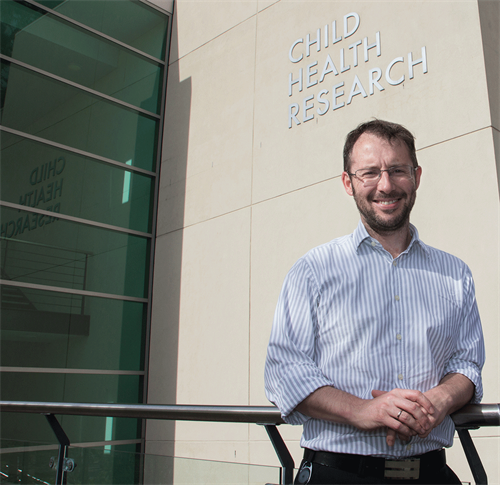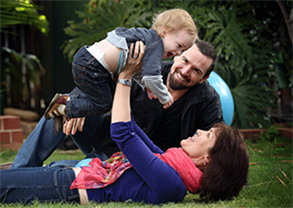
As a new parent or parent-to-be, you will be faced with many important decisions about your health and the health of your child and one of those will be about immunisation.
So to try and help you cut through some of the information overload, here's a guide from Dr Tom Snelling, one of our infectious disease specialists.
We all know vaccinations for children are important to help protect against some diseases. But did you also know that mums-to-be should plan to update their own immunisations before they have their baby??
Ideally, mums-to-be should update all their immunisations when planning a pregnancy, especially for rubella, influenza and pertussis (whooping cough). Even if you are already pregnant it is not too late to be immunised against influenza and pertussis.
Protective antibodies naturally cross from mum to bub via the placenta or in breast milk. Getting immunised before delivery boosts these antibodies and this helps protect your baby.
It makes sense too that family members should be up-to-date with their own immunisations to help prevent your baby being exposed to infection. So make sure your partner, siblings, grandparents are all up to date with their immunisations before your baby is born.
So with the adults and siblings taken care off, what about bub?
Dr Snelling says babies should receive their hepatitis B vaccine at birth, and then subsequent immunisations from six weeks after birth.
At this age, WA children are vaccinated against eight important diseases including pertussis, pneumococcus, Hib and rotavirus.
For best protection, babies need to have three vaccine doses between the ages of six weeks to six months.
Between the ages of 12 months and four years, the routine immunisation program will also protect against measles, mumps, rubella (German measles), varicella (chicken pox) and meningococcus.
When a person gets a vaccine, their body produces an immune response in the same way it would after exposure to an infection, but without suffering the full symptoms. When the person comes in contact with the infection in the future, their immune system remembers it and responds quickly.
This prevents the infection from developing and becoming more dangerous.Because of the nature of vaccines, mild reactions are common. It is common for children to display some irritability and also for some redness and swelling to appear around the injection site. It is also common for children to have a mild fever, although this rarely lasts for more than two days. Paracetamol can help reduce any discomfort but make sure you do not exceed the recommended dose for your child's age.
Immunisation is the safest and most effective way of giving your child protection against a range of dangerous diseases. If properly immunised, your child is far less likely to become infected if there are cases of the disease in the community. Even if your child does catch the disease, it is likely that any illness will be less severe and his or her recovery will be quicker than for an unimmunised child.
Infectious diseases and vaccinations are a core focus of The Kids and thanks to a $5million foundation grant from Wesfarmers we have been able to establish the Wesfarmers Centre of Vaccines and Infectious Diseases.
The centre is committed to lowering the burden of infectious diseases experienced by WA children and is focusing on assessing and delivering medical needs at the clinic, community and government level.
